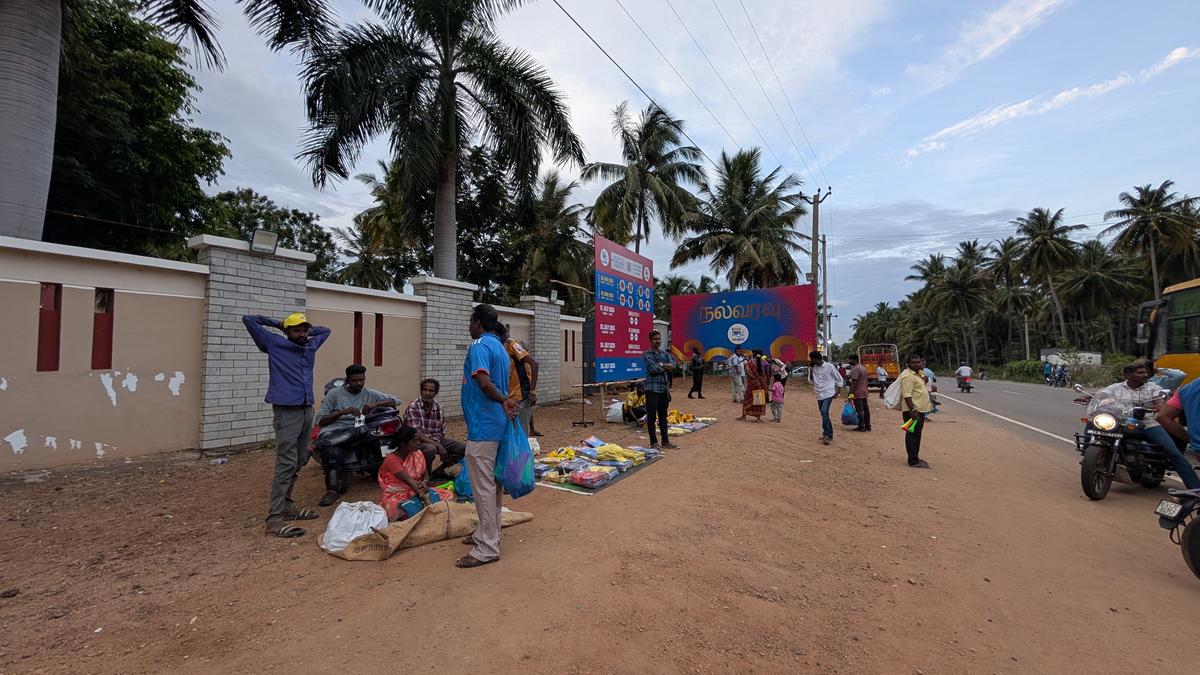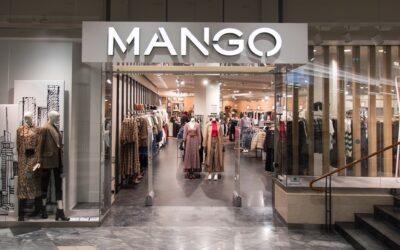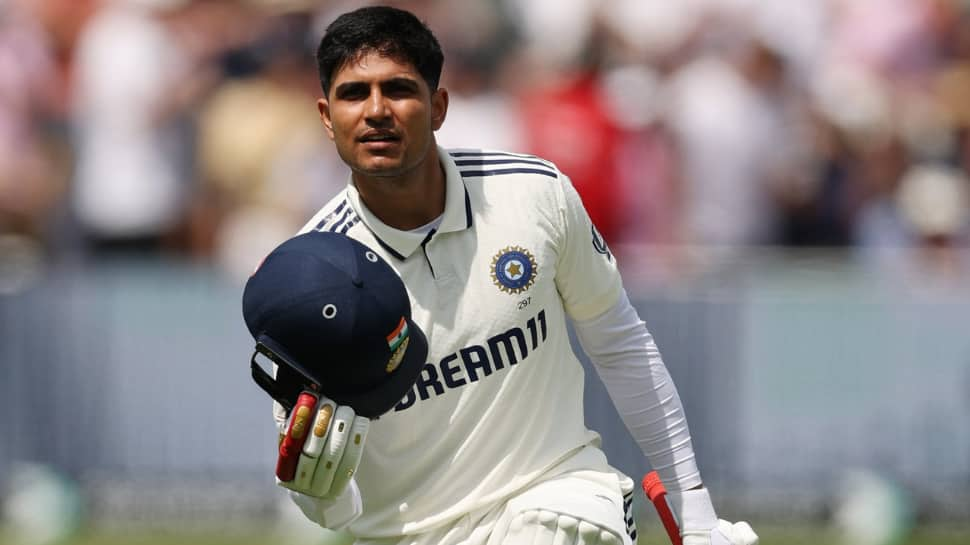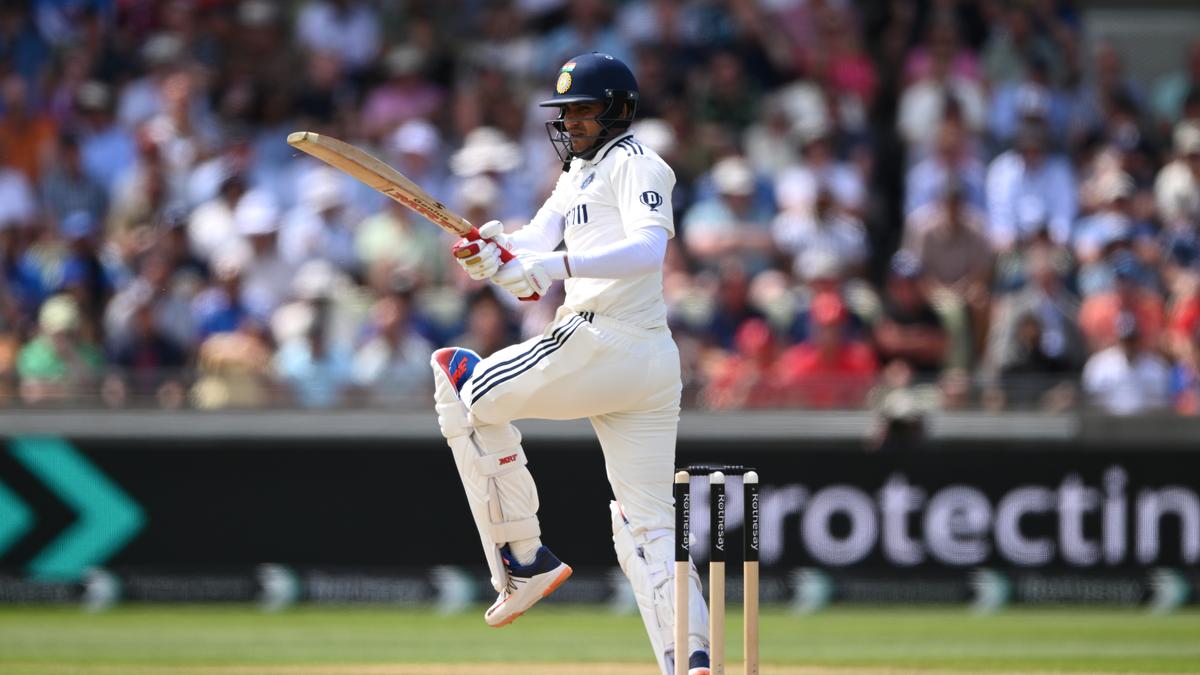Chasing crowds, not careers: TNPL through a gig worker’s eyes

Just off the Natham Bypass, under a sky stitched with coconut palms and dusk, a makeshift marketplace hums quietly to life near the NPR College Stadium, which plays host to the final leg of the ongoing season of the Tamil Nadu Premier League (TNPL).
A few paces from the venue’s welcome signboard, a young man in a yellow cap crouches beside a sheet of tarpaulin. Spread before him is an assortment of IPL jerseys and caps — bright yellows, deep reds, and electric blues — defying the dry, red earth beneath them.
“I’ve been in the jersey selling business for close to three years now,” says Samad, as he constantly scans the fans arriving in groups to witness the home side, Dindigul Dragons. “My hometown is in Kerala, but I travel around India to sell jerseys and caps outside various stadiums.”
His setup is basic. No stall, no cover, no signboard. Just merchandise, timing, and an instinct honed over seasons.
He doesn’t shout or call out to customers; he waits. Natham is his final stop this TNPL season, and while the spotlight inside shines on the players, outside, it flickers briefly — and unevenly — on vendors like him who live off the game’s margins.
“My mode of transport is usually via trains,” he adds. “It’s the cheapest option.”
READ MORE: Meet Tiruppur Tamizhans’ Kanibalan: He taught himself on YouTube, now he’s in the TNPL
Every jersey he sells fetches him a profit of roughly ₹100. But by the time he’s covered procurement costs, there’s almost nothing left for travel. “My experience helps me gauge the expected crowd for certain matches, and I draw up a schedule and travel accordingly,” he says.
The logistics aren’t easy, as the stadium is isolated from the nearby districts.
From Madurai, the stadium is nearly 45 km away and takes about 50 minutes to reach. From Dindigul town, it’s closer — 29 km — but thanks to single-lane national highways and patchy traffic, it takes just as long. For someone who depends on footfall, such details matter more than the match itself.
“Out of the TNPL venues, I think Coimbatore was the most profitable for me,” he says. “The Shri Ramakrishna College ground is close to both the railway station and the bus stop. That means more people can come, and more people come to my shop.”
The math is basic and unforgiving. He doesn’t sell TNPL merchandise — tried that once, didn’t work. “I sell only IPL jerseys. It doesn’t make sense to sell TNPL ones since it’s very limited to this tournament. I’ve tried, but the reception wasn’t good.”
IPL sells. TNPL doesn’t — at least not yet. And within the IPL universe, some patterns are universal. CSK, MI, and RCB dominate his inventory, and no matter where he sets up — north, south, east, or west — the demand remains constant. Dhoni and Kohli jerseys, in particular, are his most reliable movers. The familiar No. 7 in yellow, or the No. 18 in red and blue, rarely stay unsold for long. Sometimes it’s one buyer, sometimes a dozen.
Even if he doesn’t sell everything here, he knows the stock won’t go to waste. “I can go back home and sell the remaining goods since there’s demand for IPL throughout the year.”
When the tournament’s over, he’ll head back to Kochi, where he stations himself outside the Jawaharlal Nehru Stadium during the ISL. “Kerala Blasters jerseys tend to sell like hot cakes depending upon the fixtures,” he says with a half-smile. But nothing moves stock like cricket.
The time spent outside numerous stadiums has taught him a valuable lesson: patience is key.
Even after the match ends and the crowd begins to pour out, he doesn’t pack up. Not yet.
“I try to stick around outside the stadium for an hour or so after the match ends,” he says. “People going out might also want to purchase stuff. Something is better than nothing. So, there’s no harm in waiting.”





